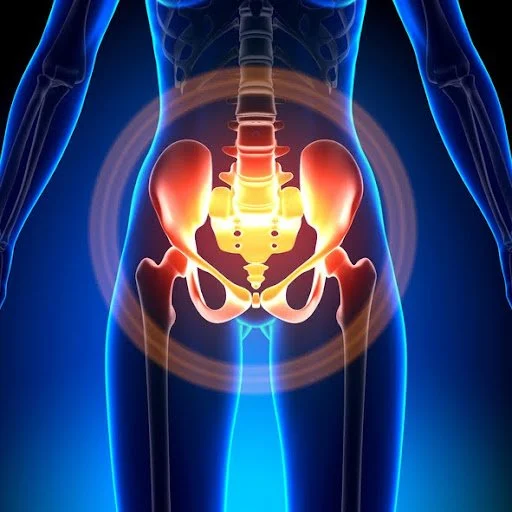Importance of Pelvic Health: Not Just for Women But Men, & Kids Too
Pelvic health is a vital yet frequently neglected component of overall well-being. A University of Iowa Hospitals & Clinics study revealed that over 30% of adult women experience pelvic floor disorders, linked to childbirth, aging, menopause, obesity, and neurological conditions. Being uncomfortable and painful, PFDs can lead to urinary/fecal incontinence, pelvic organ prolapse, and painful sex in women, impacting their social and emotional well-being.
While pelvic health is commonly associated with women due to childbirth and menopause, pelvic health is equally important for men and children. Pelvic issues affect people of all ages and genders, and understanding its significance can help us all to lead healthier and more comfortable lives.
At Mainway Physiotherapy we understand that pelvic health is important for everyone, and we'll share tips on how to keep your pelvic region healthy, no matter your age or gender.
Understanding the Pelvic Region
The pelvic region is a vital part of the body, made up of bones, muscles, ligaments, and tissues. It houses important organs like the bladder, rectum, and in women, the uterus and ovaries, while men have the prostate gland. The pelvic region is essential for various bodily functions such as urination, and digestion, and for women, it plays a role in reproduction. The pelvic floor muscles support the bladder and rectum, helping to control urination and bowel movements in men, women, and children.
Why Is Women’s Pelvic Health Important?
The pelvic region is critical to the overall well-being of women, and crucial for fertility, pregnancy, and childbirth. Pelvic health measures for women are essential to ensure:
Good reproductive health
Proper bladder and bowel function
Pelvic pain management to alleviate discomfort
Maintain sexual health, function, and comfort
Prevent pelvic organ prolapse where pelvic organs shift or sag out of their normal positions
Why is Men’s Pelvic Health Important?
Just like women, men can also experience pelvic pain conditions that need proper management and care. Pelvic health is closely linked to sexual well-being, which includes sexual function, getting an erection, and ejaculation.
The prostate gland, a vital part of a man's reproductive system, produces fluid that helps sperm during ejaculation. It can face issues like inflammation (prostatitis), enlargement (benign prostatic hyperplasia), or cancer. Prostatitis can cause pelvic discomfort, affecting urinary and sexual function.
Taking care of men's pelvic health is important for several reasons:
Ensure the prostate gland stays healthy
Support sexual function and well-being
Rehabilitation after certain surgeries, like prostate surgery
Help them live a more comfortable and fulfilling life
Why is Kids’ Pelvic Health Important?
It's not unusual for kids to have problems with their pelvic health. These issues can make it hard for them to use the bathroom properly, and they might also affect how they stand or move. That's why it's crucial to look after their pelvic health.
Some of the common Kid’s Pelvic Health Disorders may include:
Daytime wetting (urinary incontinence) and urgency (loss of urine)
Bedwetting (enuresis) - nighttime loss of urine
Fecal incontinence - loss of feces with or without staining
Urinary/fecal retention - not fully emptying bladder/bowel
Constipation/pain with less than 3 bowel movements per week.
Overactive bladder
Frequent UTIs
How to ensure a healthy pelvic region in women, men, and children?
Regular Check-ups: Schedule routine check-ups with a health care provider for men to check their prostate, for women to look after their pelvic health, including the uterus and ovaries, and for children, to quickly deal with any problems with peeing or pooping.
Kegel Exercises: Engage in Kegel exercises to strengthen pelvic floor muscles, maintain bladder and bowel control, support reproductive health, and enhance sexual well-being. Kids can also benefit from appropriate pelvic exercises to support pelvic health.
Follow Healthy Lifestyle: Everyone, regardless of age or gender, should eat well, stay active, and find ways to relax to stay healthy. Eating foods with lots of fiber and drinking enough water helps with regular bowel movement, which is super important for kids too.
Short list of treatments for men and women in relation to pelvic floor pain.
If you have concerns or require guidance regarding pelvic health, Mainway Physiotherapy is here to help. Our specialized services are designed to address pelvic health issues and support your journey towards a healthier, more comfortable life. Don't hesitate to reach out and take proactive steps towards better pelvic health today.




